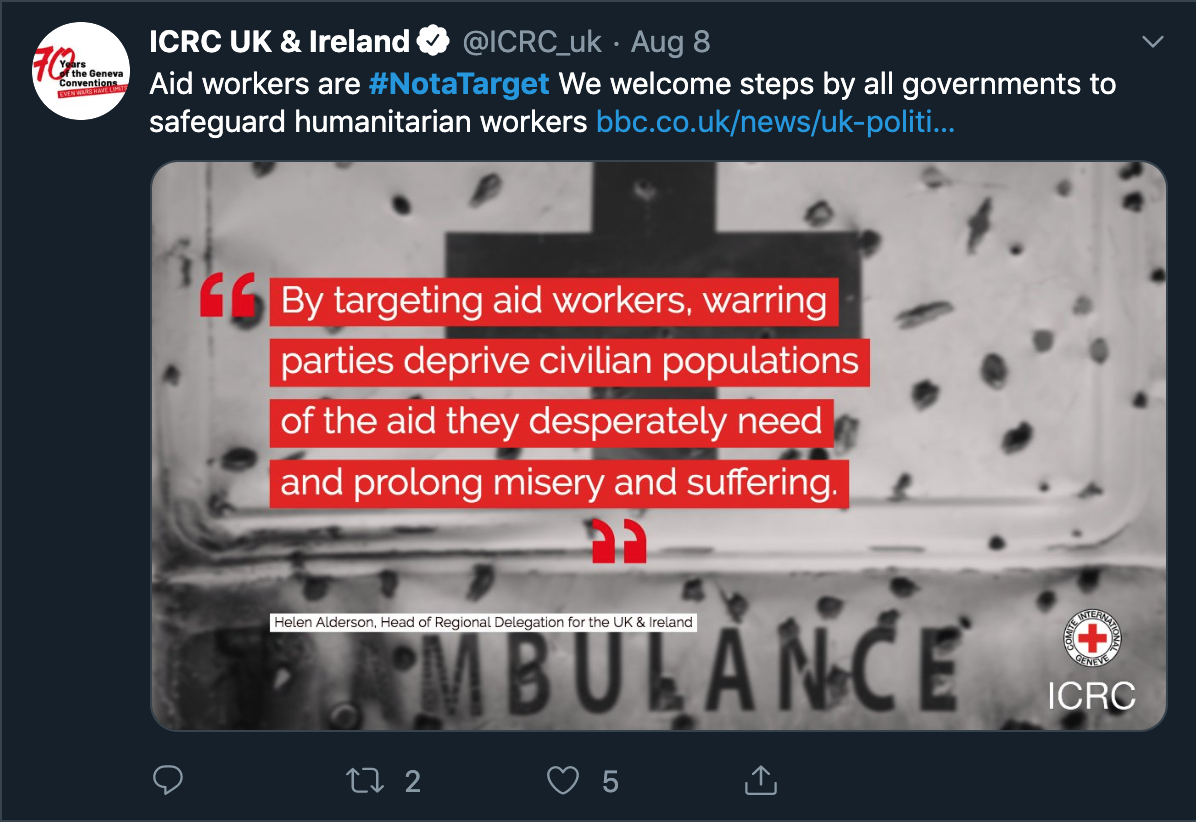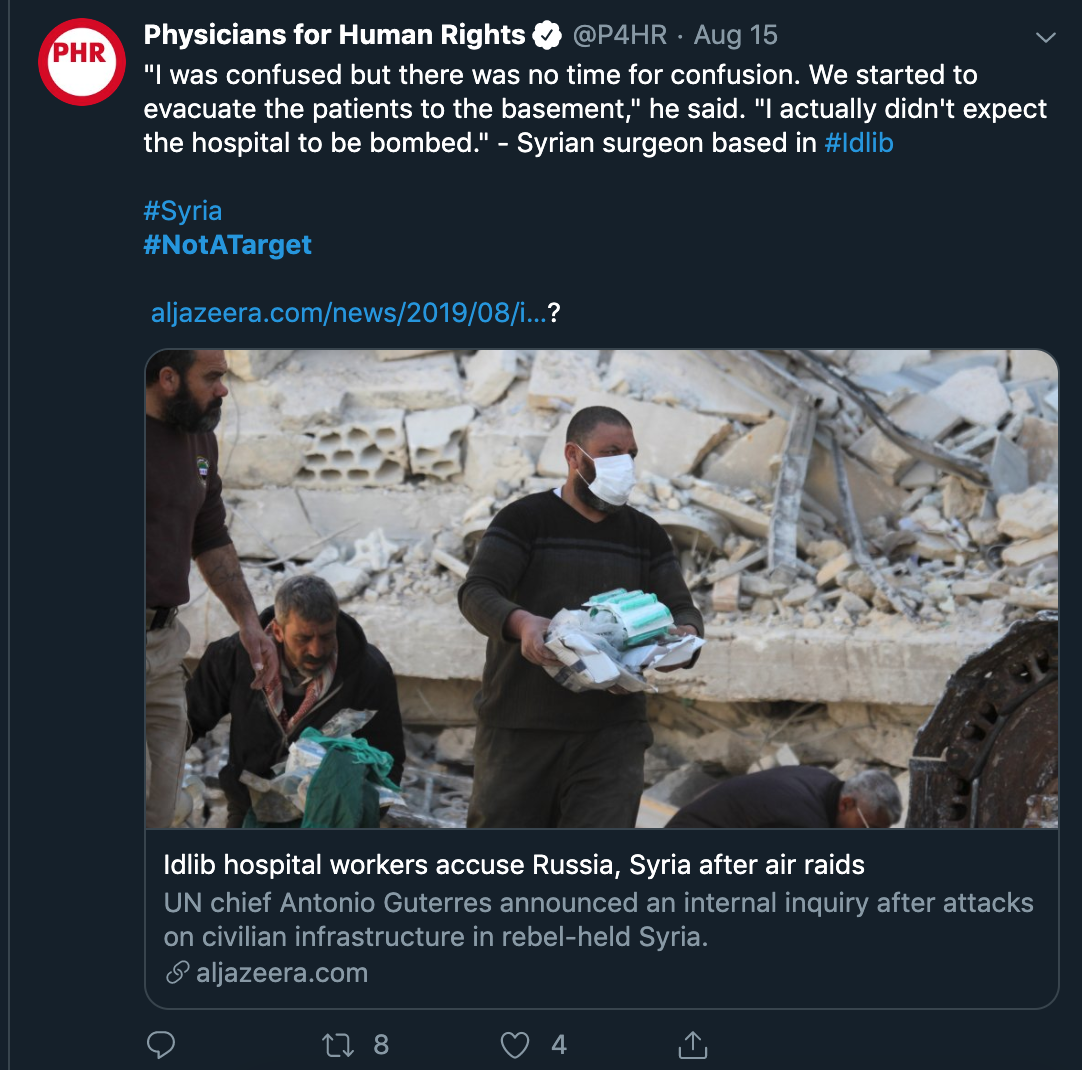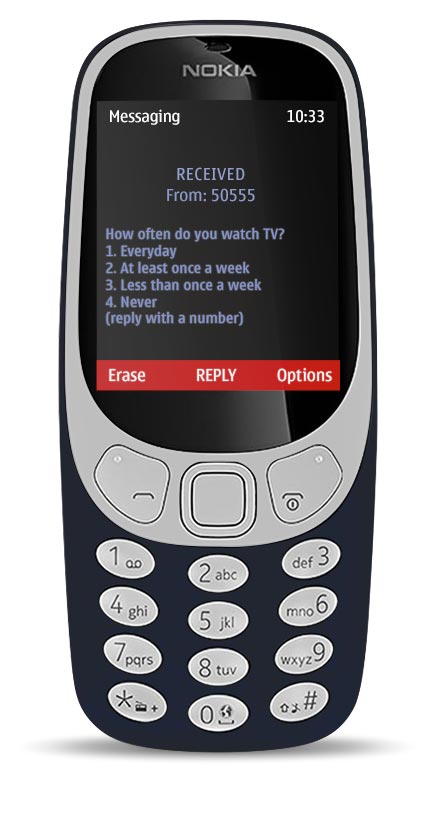
Source: https://www.un.org/en/events/humanitarianday/
Today, August 19th, is World Humanitarian Day (WHD), which is a day of remembrance and appreciation for those who have put themselves at risk to help the most vulnerable people around the world. Humanitarian bravery and selfless servitude is cause for celebration, which is one aspect of World Humanitarian Day’s importance, yet the day also is for bringing attention to issues humanitarians face.
#NotATarget
 One key issue for humanitarians is safety. In both 2017 and 2018, WHD was promoted on Twitter using the hashtag, “#NotATarget”, in order to raise awareness to the vulnerability humanitarians are subjected to when providing assistance to those in need. Although it is illegal to act violently against humanitarians in-the-field, attacks are still very common. The types of violence that are popular are looting, sexual assault, arson, and bombings. According to the WHO, acts of violence against humanitarians are under-reported yet in “2016 there were 302 reported attacks in 20 countries that were facing emergencies, which resulted in 418 death and 561 injuries to health workers. 74% of these attacks were bombings.”
One key issue for humanitarians is safety. In both 2017 and 2018, WHD was promoted on Twitter using the hashtag, “#NotATarget”, in order to raise awareness to the vulnerability humanitarians are subjected to when providing assistance to those in need. Although it is illegal to act violently against humanitarians in-the-field, attacks are still very common. The types of violence that are popular are looting, sexual assault, arson, and bombings. According to the WHO, acts of violence against humanitarians are under-reported yet in “2016 there were 302 reported attacks in 20 countries that were facing emergencies, which resulted in 418 death and 561 injuries to health workers. 74% of these attacks were bombings.”
An unfortunate reality is that no matter the number of tweets posted that used the hashtag, #NotATarget, and no matter how much publicity World Humanitarian Day receives, these types of violent attacks are still going to occur. Thinking about this reality is frustrating to many, which leads to discourse surrounding alleviating the issues that are so present for humanitarian workers.
and no matter how much publicity World Humanitarian Day receives, these types of violent attacks are still going to occur. Thinking about this reality is frustrating to many, which leads to discourse surrounding alleviating the issues that are so present for humanitarian workers.
Communication Channels for Humanitarian Crisis
The 2019 International Response Expo participated in the discussions around the issues when they named communication a top trend and challenge of the year in the humanitarian space. They defined their use of the word “communication” to mean “communication channels between government, humanitarian agencies, aid workers and crisis-affected people” and commented on the intent for strong communication is not enough.
At GeoPoll we believe that strong communication is an achievable goal for the humanitarian community because GeoPoll has been able to facilitate such communication in the past. GeoPoll has been able to bridge gaps in communication for humanitarian organizations by connecting the organizations with civilians on-the-ground in some of the hardest-to-reach regions in the world. We have been able to perform these connections through the power of a remote mobile-phone-based survey methodology in sudden-onset crises, like following Cyclone Idai, in
widespread crises like Ebola in Sierra Leone, and in conflict zones, like South Sudan.
Remote Mobile-Phone-Based Surveys for Humanitarian Crisis Response
 Our GeoPoll facilitated studies for humanitarian response have been able to quickly and remotely gather information directly from civilians for humanitarian responders. The information that can be gathered though this type of process is fully customizable to the needs of the situation at hand. For example, after Cyclone Idai, GeoPoll conducted a study immediately following the storm to find out specific information about damages and what the most urgent needs were by those affected. During South Sudan’s food crisis, GeoPoll was able to reach a variety of civilians experiencing severe food shortage that was able to inform foreign humanitarians where the points with the highest need were. Studies like these are specifically important for humanitarian response not only for the purpose of gathering specific information but because they are remotely administered.
Our GeoPoll facilitated studies for humanitarian response have been able to quickly and remotely gather information directly from civilians for humanitarian responders. The information that can be gathered though this type of process is fully customizable to the needs of the situation at hand. For example, after Cyclone Idai, GeoPoll conducted a study immediately following the storm to find out specific information about damages and what the most urgent needs were by those affected. During South Sudan’s food crisis, GeoPoll was able to reach a variety of civilians experiencing severe food shortage that was able to inform foreign humanitarians where the points with the highest need were. Studies like these are specifically important for humanitarian response not only for the purpose of gathering specific information but because they are remotely administered.
The remote nature of mobile-phone-based SMS surveys provides two key advantages for humanitarian response: safety and quick accessibility. Despite violent acts that plague humanitarians that make the work very dangerous, there are also quite a few factors of the work itself that can provide significant danger as well. For example, after natural disasters there are many environmental dangers humanitarians are exposed to—after an earthquake, there could be aftershocks that could cause entrapment in rubble, after cyclones, there could be dangerous flooding, etc. Another good example is conflict-afflicted zones. In areas dealing with violence and conflict, it can be almost impossible to deploy humanitarians on-the-ground to assess need, much less provide civilian assistance. Remote survey research in cases such as these are not only important for evaluating civilian need before humanitarian feet hit the ground in affected areas, but also are very important for evaluating safety of areas for humanitarians and can guide development of precautions for the humanitarian service, can help with briefing humanitarians on what specific situations may be encountered in-the-field.
Many humanitarian crises can escalate quickly, which is a reason to consider planning in advance for potential scenarios. Having a questionnaire developed in advance of a crisis can help with dispatching research studies even more quickly after devastating events like a natural disaster. GeoPoll’s team of humanitarian research experts would be happy to help with the scripting of a questionnaire before, during, or after a crisis occurs. Results from our data collection are available for analysis in near real-time which allows for information to reach your hands for a quick response. If you would like to learn more about how GeoPoll can help your organization help others, contact us today.



